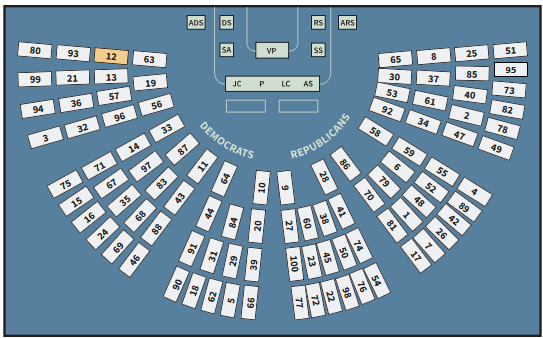Make Sure Members of Congress Hear Your Voice!
Part 1
You Can Make a Difference
Effective communication with Congress is key to ensuring that your voice—and the voices of your community—are heard in the halls of power. In a democracy, every call, email, or in-person meeting contributes to shaping policies that impact our lives. In this post, I’m sharing ten essential insights to help you master the art of engaging with Congress and turn your concerns into meaningful action.
This first segment, delves into five practical tips designed to empower your advocacy, while Part Two will reveal five additional strategies to complete your toolkit for effective civic engagement.

The First Five Pointers
1. Keep Democracy in Action
Above all, realize that communicating with Members of Congress is your fundamental right and a democratic responsibility in our society. Congress works for you.
2. Representation Matters
Recognize that elected officials are responsible for representing the interests and concerns of their constituents (that’s us). By connecting with them you’re making sure your voice is heard. Your discussion of a topic increases the chance that Congress’ decision-making process includes taking your concerns into consideration.
3. Vary Your Communications
You can reach out to your representatives in a number of ways: calls, emails, snail-mail letters, meetings, and social media. Also, consider writing and submitting a Letter to the Editor of your local newspaper regarding the issues you wish for them to support. They care about instances in which their name appears in the media.
As examples, here are two of my previous letters in The Daily Press as a constituent of Virginia.

4. Provide Awareness and Education
It’s impossible for Members of Congress to know all the details about every issue. This is where you come in. By communicating with them with your specific request, you are promoting their understanding of what most concerns their constituents.
5. Be Courteous
Whichever communication method you choose, and no matter how “hot” the issue you are seeking support for is, or which party your members belong to, always be respectful and concise. That goes a long way!

How to Begin
The first step to take if you want to communicate with Congress, is knowing who are your House of Representatives members and Senators. To easily determine this, click the contact information link below.
Take Action Now!
- Look them up! Use this link to discover who represents your state and district in the House and access their contact information.
You’re Off to a Great Start!
In Part 2 I’ve posted five more effective actions for you to carry out in your quest to communicate with Congress and be heard.



